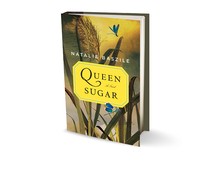Queen Sugar
By Natalie Baszile
384 pages;
Pamela Dorman Books
In Queen Sugar, two bulwarks of American literature—Southern fiction and the transformational journey—are given a fresh take by talented first-time novelist Natalie Baszile. Charlotte "Charley" Bordelon leaves her Los Angeles home and moves to her father's birthplace, tiny Saint Josephine Parish, Louisiana, to claim his unlikely bequest: a neglected 800-acre sugar cane plantation. Until ten months prior, Charley acknowledges, "I thought sugar grew on the baking aisle at the supermarket. Right below the chocolate chips and the sprinkles." But now, recently widowed, she views the land as an opportunity for a new start for herself and her daughter, Micah—an 11-year-old whose West Coast existence included meeting her wealthy grandmother for tea at the Ritz-Carlton on her birthday. Micah's new surroundings make her wonder why everything in Saint Josephine is broken down, and why nearly everyone is black.
Like legions of other African Americans who are part of the current reverse migration leading them "down home," Charley finds that the distance from her Southern roots is about more than miles and a few generations. She is perceived as an outsider by whites and blacks alike, and it turns out she needs to rebuild her farm almost entirely from scratch. Not even a mule comes with Charley's acres—just a heap of busted equipment, a farm manager who must be coaxed from retirement and a crazy quilt of relations and neighbors who, ironically, prove to be her salvation.
From the aromas of Community Coffee and Evangeline Maid bread to the resurging farm, "a wall of green cane leaves drinking up the afternoon light," travels with Charley are a sensory experience, a tableau vivant that Baszile skillfully paints in a palette simultaneously subtle and bold. Queen Sugar is a bright and enticing reminder that, sometimes, you can go home again.
— Virginia Deberry & Donna Grant


